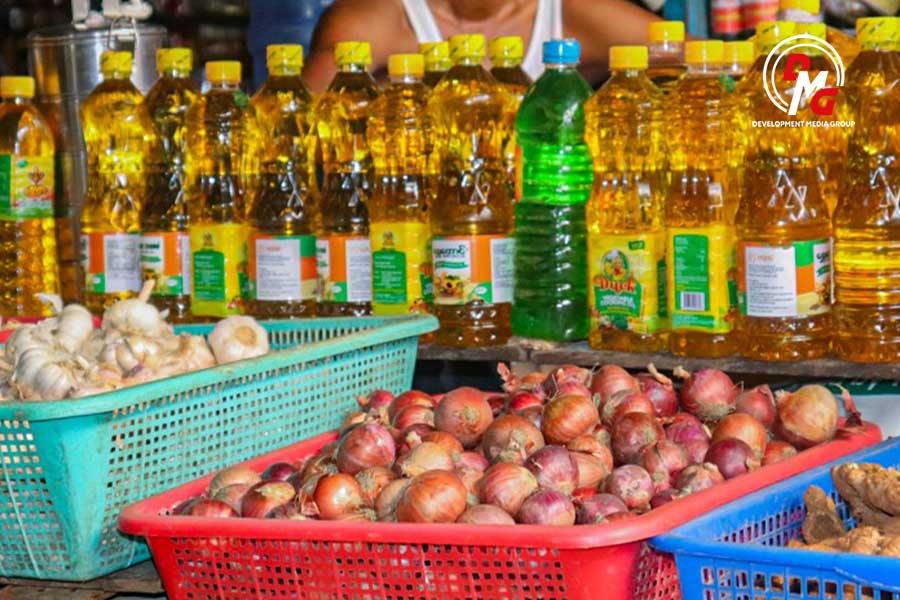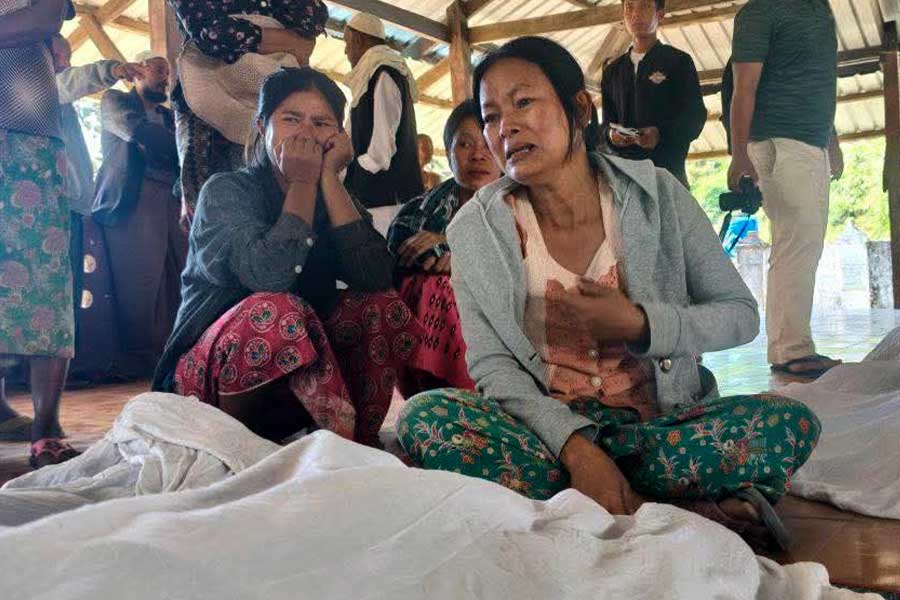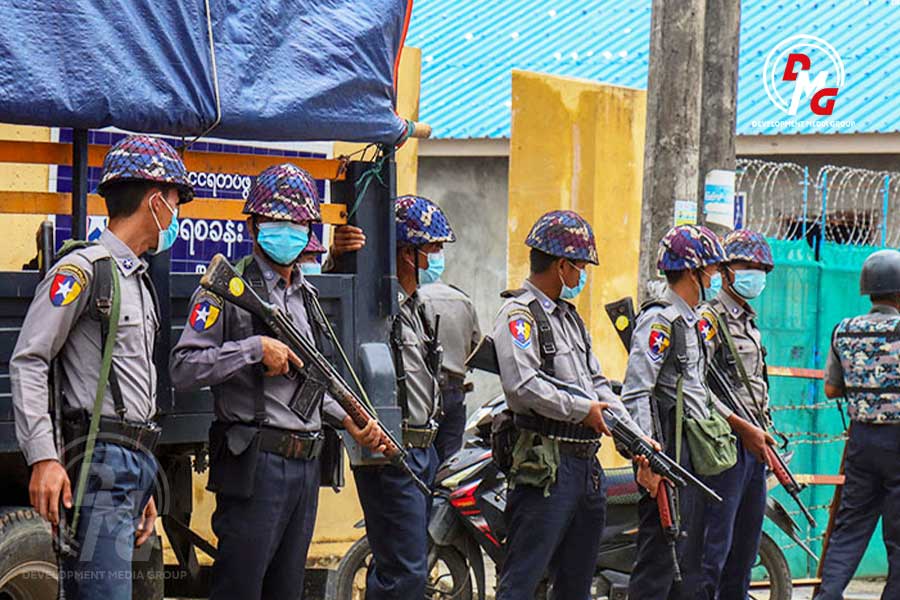- Junta expands naval presence along Arakan coast to regain lost territory
- Nearly 70 civilians and POW family members killed or injured by junta attacks in Arakan State in one month
- Junta accused of extorting money from detained Muslims in Sittwe
- Weekly Highlights from Arakan State (Jan 26 to Feb 1, 2026)
- Arakanese youth stabbed in Mae Sot urgently needs financial aid for medical treatment
Grassroots hard-hit by high, unstable prices in Arakan State
The prices of basic commodities such as rice, cooking oil, dried chili, and onion are unstable in Arakan State and fluctuate rapidly, causing difficulties for the society's lower classes in particular.
17 Sep 2025

DMG Newsroom
17 September 2025, Mrauk-U
The prices of basic commodities such as rice, cooking oil, dried chili, and onion are unstable in Arakan State and fluctuate rapidly, causing difficulties for the society's lower classes in particular.
The price of one bag of rice, a staple food in Arakan State under Arakan Army control, rose to K110,000 in the first week of September, and then dropped by about K5,000 in the second week, bringing the price to around K105,000.
One viss of onion is said to fluctuate between K7,000 and K8,000, one viss of garlic between K25,000 and K26,000, one viss of ginger between K20,000 and K15,000, and one viss of green chili between K30,000 and K25,000.
Amid the instability in the prices of basic goods, the grassroots are struggling to make ends meet due lack of income.
"I make about K15,000 per day by collecting bamboo shoots. K15,000 is not enough for me to feed my family. If I don't have rice to eat, I have to borrow from others," said Daw Ma Hla Phyu, a 46-year-old woman in Khapaw Village, Kyauktaw Township.
Daw Ma Hla Phyu also hunts for food in the forests and mountains near the village, as well as cutting firewood, bamboo, and bamboo shoots.
The grassroots are hoping for a decrease in the price of basic goods and greater price stability in Arakan State.
In the past, the United League of Arakan/Arakan Army (ULA/AA) regulated the prices of basic food items such as meat and fish in some townships to stabilise prices, but this is no longer the case. Locals say that there is a need to regulate prices in a way that is acceptable to all.
"Prices are going up and down. Last week, an item cost K5,000, but this week it is K10,000. With such price fluctuations, both buyers and sellers are having a hard time. Everyone is waiting for the price to drop," said Daw Ma Thein Saw, a 42-year-old resident of Mrauk-U.
Myanmar's military regime has blocked all trade routes from mainland Myanmar into Arakan State since November 2023.
As a result, locals in Arakan State have to import almost all the basic food and consumer goods they need through the borders with India and Bangladesh.
When importing from the border, goods shortages are common due to transportation difficulties and delays, and local residents are suffering from price increases.
"The journeys are very dangerous when transporting goods. The goods have to be transported by trucks and boats, so the freight and labour costs are high, and the road costs are almost the value of the entire goods. Also, due to the exchange rate fluctuations, goods imported from India are expensive when they reach Arakan State," said U Aung Thein, a local merchant in Mrauk-U Township.
Prices of goods have risen sharply in the more than four years since the coup. Since the fighting in Arakan State began, the prices of almost all goods, including basic food items, have increased up to tenfold.
Due to a lack of humanitarian assistance, the need among Arakan State's displaced population has also increased, leading to a rise in begging and poverty.















.jpg)

